Borough Parade, Chippenham, Wiltshire, SN15 3WL
Chippenham began as a Saxon settlement in about the 6th century, part of the Kingdom of Wessex. In the late 9th century, Alfred the Great had a royal hunting lodge here. From that time, there has been a bridge across the Avon. The first house on the High Street side of Town Bridge was Bridge House, once a public house/hotel and then a long-standing grocery and wine store, until its demolition in the 1950s.
Prints of Lacock Abbey.
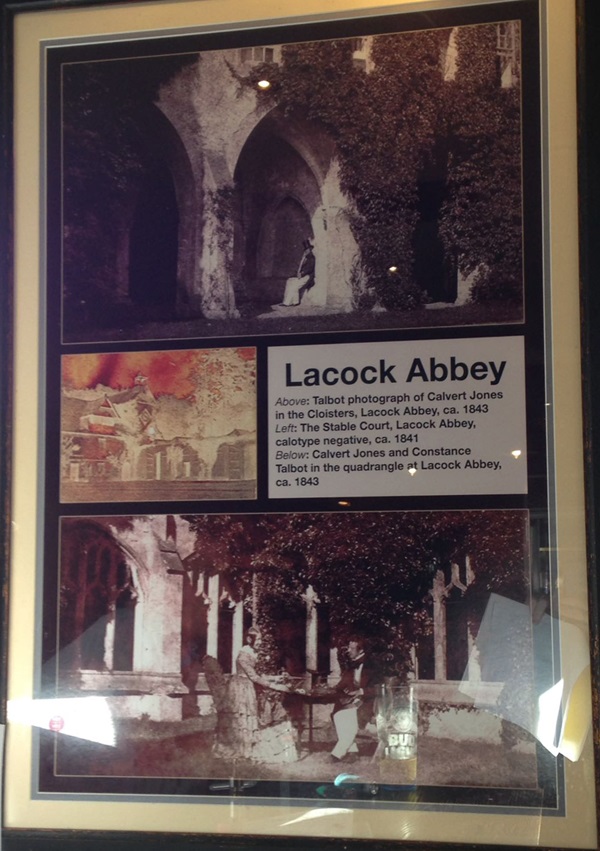
Above: Talbot photograph of Calvert Jones in the Cloisters, Lacock Abbey, c1843
Left: The Stable Court, Lacock Abbey, calotype negative, c1841
Below: Calvert Jones and Constance Talbot in the quadrangle at Lacock Abbey, c1843.
An illustration of the welcome for Joseph Neeld, MP, at the opening of the Cheese Market, 1850.
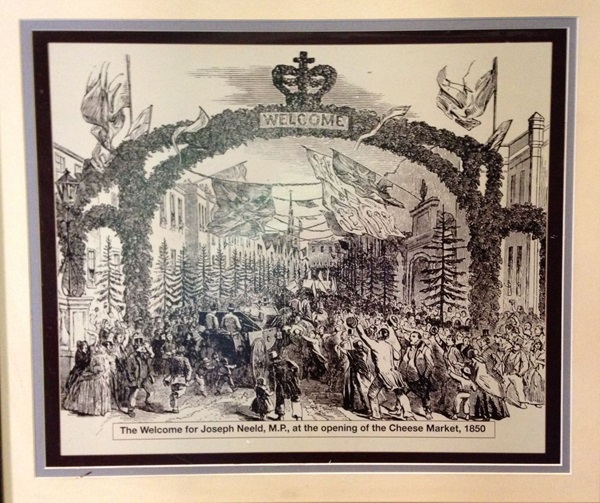
Photographs and text about the arrival of the railway.
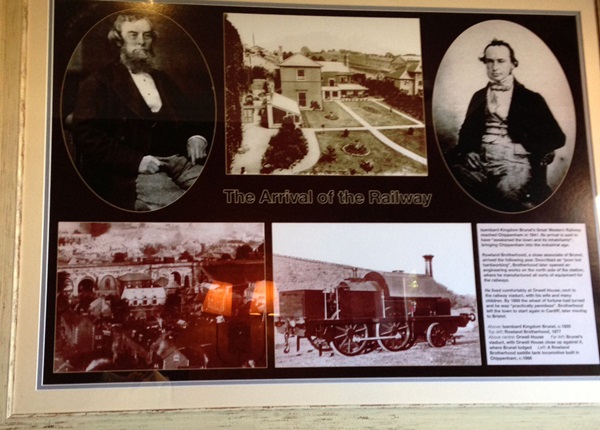
The text reads: Isambard Kingdom Brunel’s Great Western Railway reached Chippenham in 1841. Its arrival is said to have “awakened the town and its inhabitants”, bringing Chippenham into the industrial age.
Rowland Brotherhood, a close associate of Brunel, arrived the following year. Described as “poor but hardworking”, Brotherhood later opened an engineering works on the north side of the station, where he manufactured all sorts of equipment for the railways.
He lived comfortably at Orwell House, next to the railway viaduct, with his wife and many children. By 1869 the wheel of fortune has turned and he was “practically penniless.” Brotherhood left the town to start again in Cardiff, later moving to Bristol.
Above: Isambard Kingdom Brunel, c1855
Top left: Rowland Brotherhood, 1877
Above Centre: Orwell House
Far Left: Brunel’s viaduct, with Orwell House close up against it, where Brunel lodged
Left: A Rowland Brotherhood saddle tank locomotive built in Chippenham, c1866.
A photograph of Rowland Brotherhood, Brunel’s colleague, who lived at Orwell House and built a thriving local company.
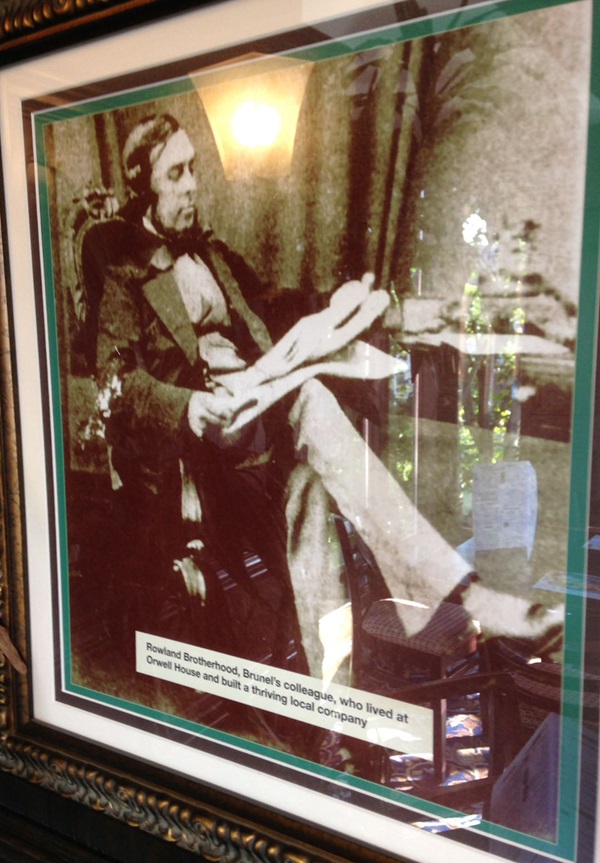
Photographs and text about Eddie Cochran.

The text reads: The American rock ‘n’ roll star Eddie Cochran, was only twenty-one when he died from injuries sustained in a car crash at Rowden Hill, Chippenham, in April 1960. Songwriter Sharon Sheeley and singer Gene Vincent survived the crash.
In his short career Cochran produced classics such as C’mon Everybody and Summertime Blues. Three Stars was a tribute to Buddy Holly, Ritchie Valens and JP ‘The Big Bopper’ Richardson, who were killed in a plane crash, in February 1959.
An oil painting entitled Chippenham Town, by Robert Cordingley.
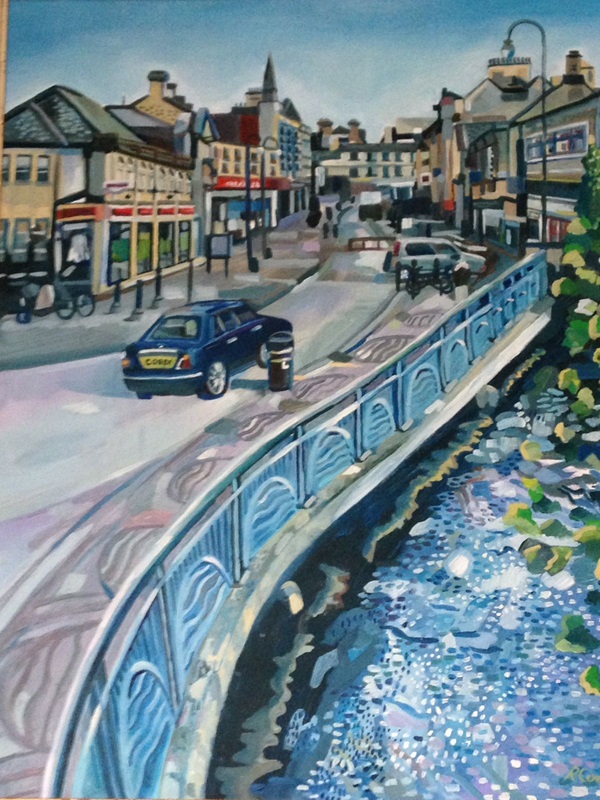
Robert trained as a painter at Falmouth College of Art and at The Surrey Institute.
He has exhibited widely in the UK. More information and examples of his work can be found on his website www.robertcordingley.co.uk
External photograph of the building – main entrance.
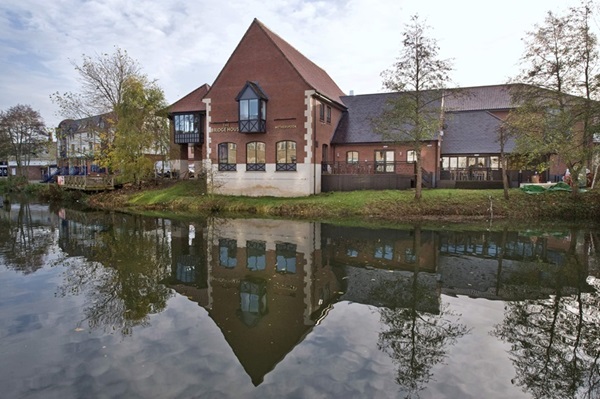
If you have information on the history of this pub, then we’d like you to share it with us. Please e-mail all information to: pubhistories@jdwetherspoon.co.uk